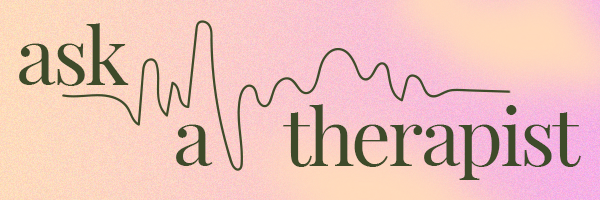Ask A Therapist: How Can I Stop Freezing Up In Arguments?
Photographed by Poppy Thorpe.
Ever wondered what you'd say to a therapist, given the chance? We asked Dr Sheri Jacobson, a retired psychotherapist with over 17 years' clinical experience and the co-founder of Harley Therapy Platform (UK Online Therapists), for advice on the things we worry about in private.
Have a question for a therapist? Submit yours for Sheri.
Question:
I have quite strong opinions but I really hate arguing because I just freeze up. It’s like my brain stalls and even if I felt assured of what I was going to say before, I can no longer access the thought. Because of this I can get really frustrated, which I know is unpleasant for everyone. Is this a problem? If so, how can I learn to let these feelings and freezing go?
AdvertisementADVERTISEMENT
Sunila, 25
Answer:
The reason we freeze up in moments of conflict or tension is actually very instinctive to humans. We have these instant reactions to things we perceive as threatening, whether or not it's an actual threat. And so we will usually fight, flight or freeze.
This is because throughout our evolution, to go against the group had genuine risks. You could be ostracised and cast out of a group, which in olden times might well mean you don't have the protection of the group in seeking food and shelter or community protection against predators. So being disliked or the possibility of losing a connection might also mean losing the protection of that person or the group. And our instinct to protect against that is built into our brain.
Our brain circuitry runs to the primitive part of the brain first before it gets to the parts that work on logic because that is a relatively newer development in the brain that we can't access as fast. So it's a real uphill battle to try and gain any access to rational thoughts and in turn our behaviour. We need to make a conscious decision often to correct behaviour that's instinctive.
In order to change those very basic mechanisms, we've got to calm that more archaic part of the brain down in order for us to have access to the newer, more rational part. It's a case of trying to soothe ourselves, either through breath work, counting or a time-out. But that is very, very difficult on a practical level. I have seen from working with clients that it's so hard to combat those instantaneous responses in difficult, heated situations.
AdvertisementADVERTISEMENT
You could work with the other default responses in that moment, those being fight, flight, freeze or friend (friending is when you deliberately side with the other person and convert them from a danger to a potential ally). However, that takes a lot of work as you are trying to make a behavioural decision that goes against your instinct, which is often dictated by earlier childhood experiences. Instead you have to not only calm down but also work on and rehearse a new behaviour until it becomes the default.
It's a lot of work and many people do not reach that place so you must be self-compassionate in this process. Even small changes, like slightly less freezing, is progress.
If you can feel frustration rising in the moment, especially when you don't have all the facts to hand, you can train yourself to have neutral expressions to fall back on. Examples include 'I'll have to think about that', 'I'm not quite sure', 'I may need to get back to you on that', 'I don't have a strong view at this moment' or 'I'll reserve judgement at this point'.
You can have your preferred phrase and that's the thing that you try and throw out to buy you time. If those don't fit, there are more forceful ones that we sometimes use, like 'We'll have to agree to disagree' or 'I don't quite see it the way that you do right now, but I respect your view'. The shorter and the more rehearsed, the more likely it is to become instinctive. Ultimately, once your body is not primed for these primitive mechanisms of fight, flight, freeze, friend, you could probably have a better chance of acting in a way that lines up with your goals and values at a later time.
Regardless of how sophisticated we are, when it comes to those seemingly threatening positions, we will act in a more instinctive, rudimentary way and it is very, very, very natural. That said, it is not necessary – in today's world, encountering the wrath of someone doesn't necessarily mean that you're going to be ostracised. But it's a legacy that we carry in our minds.
Our world has changed so much and yet our more primitive response mechanisms, appetites and preference for dealing with people in smaller numbers is still there. So be assured that reacting in this way is not a character flaw at all.
AdvertisementADVERTISEMENT







